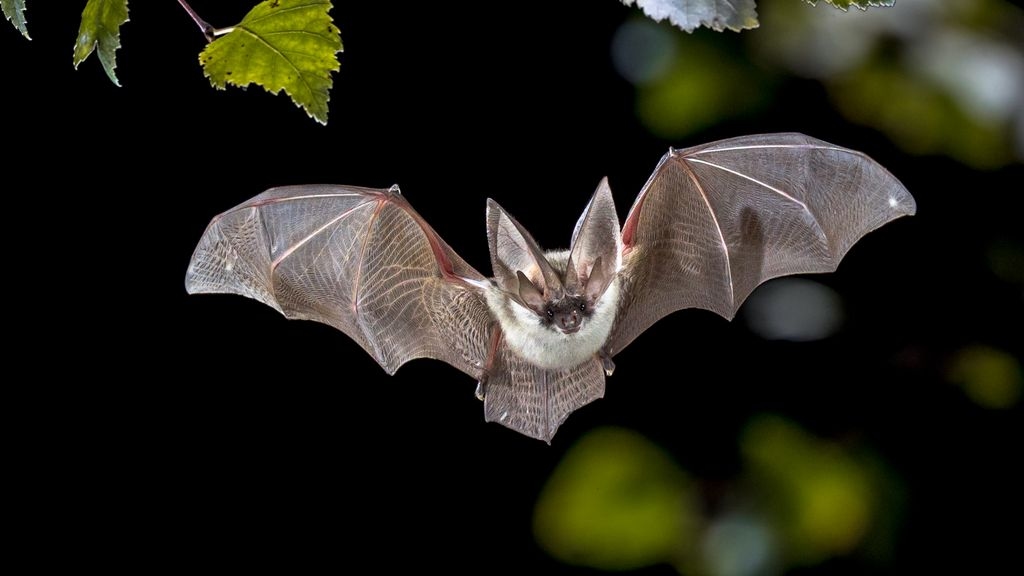Bat Guide

Bats play a vital role in the UK's ecosystems, but their presence can occasionally lead to concerns when they roost in buildings or interact with human spaces. This guide will help you understand the importance of bats, how to manage their presence responsibly, and what to do if you have bat-related issues.
THE DANGERS
What problems bats pose
While bats themselves pose little direct threat to humans, their roosting habits can occasionally cause concerns, especially if they inhabit attics, roofs, or other parts of buildings.
Property Damage
Bat roosts rarely cause significant property damage. However, guano can sometimes accumulate in areas where bats regularly roost, such as attics or loft spaces. In high numbers, this can lead to odor issues or minor damage to insulation or wood. Cleaning bat droppings should be done with care, using appropriate protective equipment, as guano may harbor fungi or bacteria harmful to humans.
Bats around businesses
In commercial settings, bats may roost in old buildings, barns, or even warehouses. While they rarely cause significant damage, their presence can be concerning for business owners due to the legal protections surrounding them. Businesses should seek guidance on safely cohabiting with bats or relocating them with the help of licensed professionals.
Did you know:
Bats are the only mammals that can fly, and they use their wings to regulate body temperature as well as for flying.
BAT BIOLOGY
TYPES OF BAT IN THE UK
The UK is home to several bat species, but the most common ones you'll encounter are:
Common Pipistrelle: The most common bat species in the UK, small and agile, often seen hunting insects at dusk.
Brown Long-eared Bat: Recognised for its large ears and quiet flight, this species prefers roosting in barns or old buildings.
Greater Horseshoe Bat: A rarer species, known for its distinctive horseshoe-shaped nose and preference for caves or large old buildings.
WHEN ARE BATS MOST ACTIVE
Bats are most active from spring to early autumn when they emerge from hibernation to breed and feed. They hibernate during the winter months, usually in caves, tunnels, or other sheltered spots, and rarely cause issues during this time.
SIGNS BATS ARE AROUND
If bats are hanging around your property, there are some clear signs to look out for:
Bat Droppings (Guano): Often found beneath roosting spots or entrance points.
Nocturnal Movement: Bats are active at dusk and night, so you may hear fluttering or scratching sounds in attics or see bats flying near your home.
Stains or Marks: Bats may leave greasy marks around small holes or crevices they use to enter or exit buildings.
Did you know:
Bats navigate and locate prey using echolocation, emitting high-frequency sounds and interpreting the echoes.
MANAGING BATS
PREVENTING BATS
To prevent bats from roosting in your building:
Seal Entry Points: Inspect your property for small openings.
Install Bat Boxes: Encourage bats to roost away from your home by installing bat boxes in your garden or nearby trees.
Avoid Disturbing Roosts: If bats are already present, avoid disturbing them, especially during maternity season (May to August).
BATS AND THE LAW
ARE BATS PROTECTED?
Yes, all bat species in the UK are legally protected under the Wildlife and Countryside Act 1981 and the Conservation of Habitats and Species Regulations 2017.
This means it is illegal to disturb, harm, or kill bats, or to damage or block their roosts, whether intentionally or unintentionally.
If you have bats in your home or building, you must seek advice from bat conservation specialists before taking any action.
DIY BAT MANAGEMENT
Handling bats yourself is illegal, and DIY solutions are not recommended due to the legal protections surrounding bats. If you suspect a bat issue, always consult a professional.
PROFESSIONAL BAT MANAGEMENT
If bats are causing significant issues, it’s best to seek professional help. Licensed bat handlers and conservation specialists can provide safe, legal solutions, including bat surveys and advice on mitigation measures.
By understanding the importance of bats and knowing how to coexist with them, you can help protect these fascinating creatures while minimizing any potential concerns.
Defend yourself against pests with Contego
Don't wait until pests have invaded your premises, take action now and get in touch with Contego to safeguard your space from infestations. Our expert team is ready to assist you in defending yourself against pests, so contact us today for a comprehensive solution.


-640x480.jpg&w=1920&q=100)


